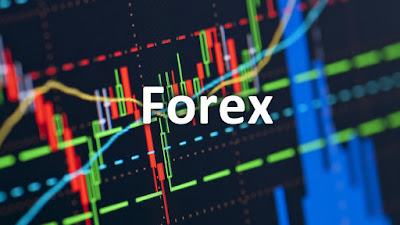The more volatile the market, the higher then index option premium! The duller the market, the lower the index options premium. Well it depends on the expectations of the traders whether the market will move sufficiently in the near future for them to exercise their buy or sell rights.
Options offer investors far more trading strategies as compared to futures. Such strategies can range from highly speculative to highly conservative. Options are a far more basic instrument than the ETFs and futures. You can easily replicate any ETF or futures contract with an option but the reverse is not true. In case, the market does not decline, you only lose the premium that you had paid for the put option. Suppose, you are afraid that the market is going to go down in the near future! You can protect yourself from this decline in the market by buying a out index option. When the market declines, the put increases in value.
Now the seller of a call options believes that the market will not move sufficiently up in the near future so he/she can make money by writing a call options contract and selling it to someone who believes the maker will move up. Of course for anyone who buys an options contract there should be someone to sell the options contract to make a complete transaction.
So in a way, buying and selling of options contracts make options trading a zero sum game. Either the market will move up or it will not. Either the option seller will win or the options buyer will win. The development of the stock index futures and the index options was a major development in'80s for investors and money managers. The buyers of the put options are in a way insuring their portfolio against possible market decline but who are the sellers of the put options. They are primarily those investors who are willing to buy those stocks but only at lower prices.
Heavily capitalized firms in the major stock indexes like the S&P 500 or the Dow Jones Industrial Average (DJIA) have always attracted money because of their outstanding liquidity. But with stock index futures and options, investors were able to buy in some way the whole market such as represented by these stock indexes.
The Exchange Traded Funds (ETFs) gave the investor still more ways to diversify across all market with very low costs. ETFs give you the familiarity of the stocks but like index futures much higher liquidity and superior tax efficiency.
Index options give the investors the ability to insure the value of their portfolios at the lowest possible prices and save on the transaction costs and taxes. - 31876
Options offer investors far more trading strategies as compared to futures. Such strategies can range from highly speculative to highly conservative. Options are a far more basic instrument than the ETFs and futures. You can easily replicate any ETF or futures contract with an option but the reverse is not true. In case, the market does not decline, you only lose the premium that you had paid for the put option. Suppose, you are afraid that the market is going to go down in the near future! You can protect yourself from this decline in the market by buying a out index option. When the market declines, the put increases in value.
Now the seller of a call options believes that the market will not move sufficiently up in the near future so he/she can make money by writing a call options contract and selling it to someone who believes the maker will move up. Of course for anyone who buys an options contract there should be someone to sell the options contract to make a complete transaction.
So in a way, buying and selling of options contracts make options trading a zero sum game. Either the market will move up or it will not. Either the option seller will win or the options buyer will win. The development of the stock index futures and the index options was a major development in'80s for investors and money managers. The buyers of the put options are in a way insuring their portfolio against possible market decline but who are the sellers of the put options. They are primarily those investors who are willing to buy those stocks but only at lower prices.
Heavily capitalized firms in the major stock indexes like the S&P 500 or the Dow Jones Industrial Average (DJIA) have always attracted money because of their outstanding liquidity. But with stock index futures and options, investors were able to buy in some way the whole market such as represented by these stock indexes.
The Exchange Traded Funds (ETFs) gave the investor still more ways to diversify across all market with very low costs. ETFs give you the familiarity of the stocks but like index futures much higher liquidity and superior tax efficiency.
Index options give the investors the ability to insure the value of their portfolios at the lowest possible prices and save on the transaction costs and taxes. - 31876
About the Author:
Mr. Ahmad Hassam is a Harvard University Graduate. Try these cash printing Forex Signals from heaven. Discover a revolutionary Forex Robot System!

Nenhum comentário:
Postar um comentário